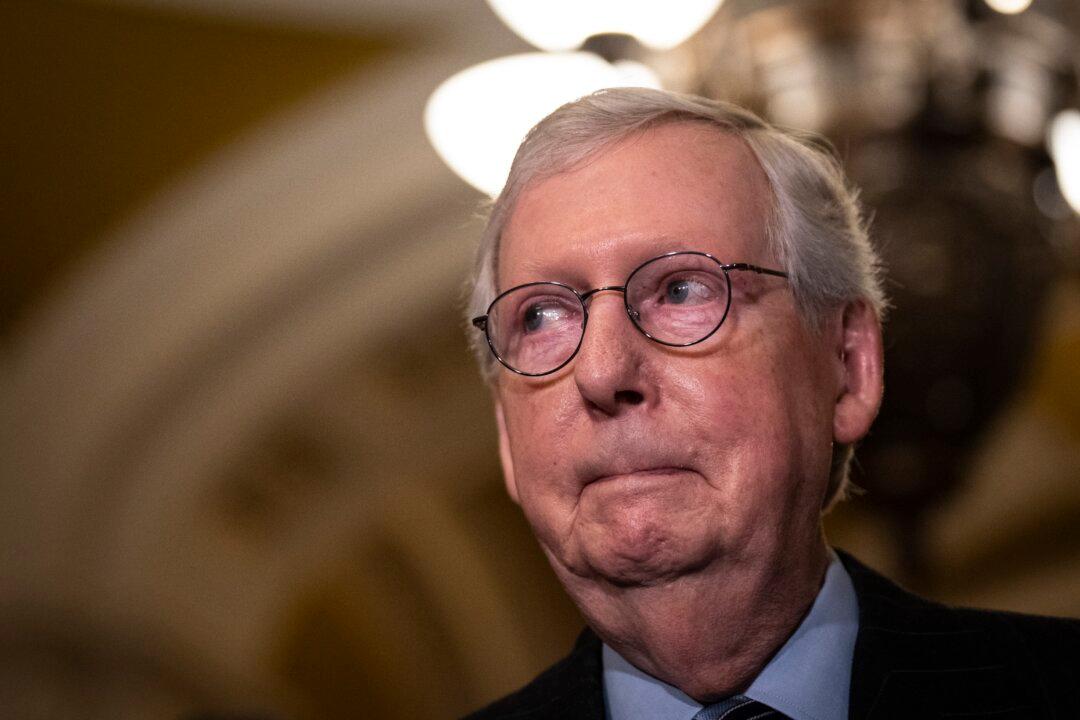Senate Republicans on Nov. 16 reelected Senate Republican Leader Mitch McConnell (R-Ky.) as the top GOP senator, rejecting a challenge from Sen. Rick Scott (R-Fla.).
McConnell easily swatted back the challenge from Scott in the first-ever attempt to oust him after 15 years as GOP leader.





